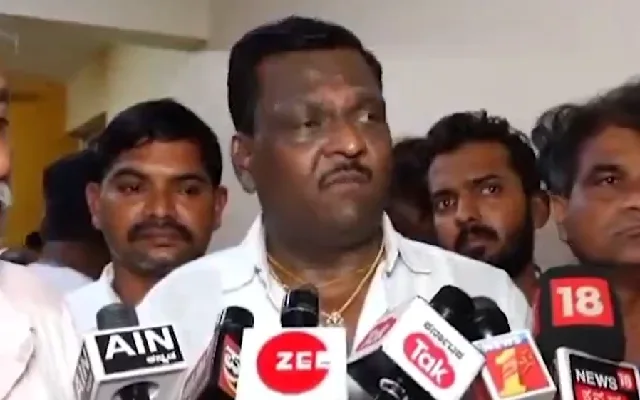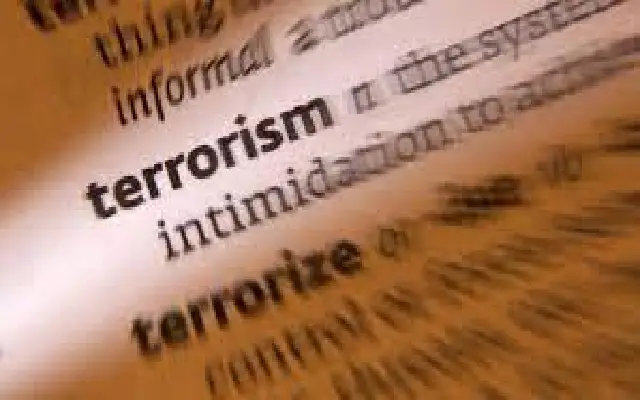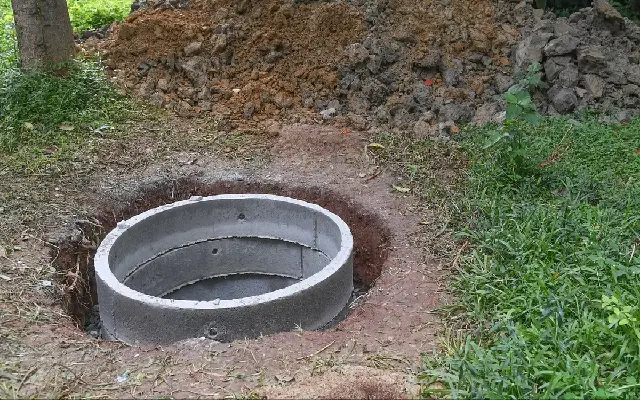
The day before yesterday and yesterday I reviewed parts of the Congress Manifesto that is key to the future of our young nation – Kaam, Daam, and Shaan. There were some radical new thoughts in there, indicating that a lot of brainstorming has gone into this document. If implemented in toto, development can be rapid. But, there’s always a but…. And often a manifesto is the butt of jokes by the opposition. But this one has some rattled.
Today in the concluding part (part III) we will review the remaining sections of the Manifesto – Samman, Sushasan and Swabhiman and see what it has to offer.
Samman – A life of dignity for all:
a. Healthcare – The Rights approach to governance is again visible in this section of the manifesto. Following on the Aysuhman Bharat programme of the current regime, the cornerstone of the Congress healthcare policy is the formulation of the Right to Healthcare Act that will guarantee to every citizen the right to healthcare services, including free diagnostics, out-patient care, medicines and hospitalization through a network of public hospitals and enlisted private hospitals. No insurance-based model for them.
They also propose an increase in ambulances, Trauma, and Emergency Centres, Child health care, expand the Asha programme (appoint a second ASHA worker in all villages with a population exceeding 2500 persons) and increase geriatric services. These promises if kept will benefit millions, but they must also be implemented well. Importantly they plan to regulate the private clinical establishments through the implementation of the Clinical Establishments Act, 2010 to bring accountability to the functioning of private and public clinical establishments.
The Congress also plans to promote AYUSH, the Indian system of medicine, in the provision of healthcare services and especially in preventive healthcare and crucially it promises to implement the National Mental Health Policy, 2014 and the Mental Health Care Act, 2017 in letter and spirit.
b. Education – In keeping with its rights approach to governance, Congress proposes to pass a Students Rights Bill to codify the rights and obligations of students in colleges and universities. While a codification of obligations is welcome, can they be enforced through law? Who will prosecute? Codification of rights, on the other hand, could perhaps lead to an 80’s type unrest on campuses and is a path that must be trodden carefully.
As far as the education sector is concerned, they propose to transfer school education to the state list and make education from Class I to Class XII in public schools compulsory and free through suitable amendments to the Right to Education Act, 2009. The, however,r propose to retain Higher Education in the union list. Significantly, they plan to increase the number of publically funded universities, dispense with the NEET Examination, increase scholarships and expand the Education Loan programme. Barring the scrapping of the NEET, all-laudable moves.
c. Water – Recognising the importance of the availability of potable water across the nation, the Congress plans to create a Ministry of Water to bring all water-related activities and departments under one authority. It’s not clear how this will help reduce the water shortage, but it may improve water resources management. The Ministry will supposedly manage access and storage of water, cleaning of rivers and the Nirmal Bharat Abhiyan (NBA) which they will revive to ensure universal access to a clean, functioning toilet with water rather than focus, they say on numbers.
d. Environment and Climate Change – The Annual Budget the Congress says, will adopt the core principles of Green Budgeting, whatever that means. It will also endeavor to make India a green manufacturing hub and strengthen the National Clean Air Programme. But importantly they propose to constitute a new legal body to protect the environment. The body they say will be an independent, empowered and transparent Environment Protection Authority (EPA) to establish, monitor and enforce environmental standards and regulations. The EPA will replace all other bodies that currently exercise jurisdiction and powers.
e. Digital Rights – Two very significant moves that will help the citizen be informed find a place in this section – the Congress proposes to make all government departments publish all non-private data sets as open data, allowing citizens to access the data without having to file RTI requests; and pass regulations to stop the spread of fake news and hate speech and punish those who misuse digital and social media. This could mean anything including censorship….
They also commit to uphold the principle of ‘net neutrality’ to ensure the internet stays a level playing field, and promote open source software.
f. Sports – Sport in India is political. All sports bodies are polarized on political lines because of the ingress of serving and retired politicians into their governance structure. The Congress says it will end this system or at least reduce its incidence by ensuring that the Constitution of each sports body is in accordance with certain norms and principles, that elections are held according to them, and that there is adequate representation in each sports body for active players, former players, and women. Given that the BCCI is still struggling to have an elected body following a forced change in Constitution on these very lines, this move might die a natural death. The other significant announcement is that they will make physical education and sports an integral and mandatory part of the school curriculum and encourage higher education institutions to accord sports an important place.
Sushasan – Good Governance through Independent and accountable institutions
a. Governance – Always a casualty under coalition governments, Congress seems determined this time for a makeover. It plans compulsory Social Audits for all government schemes and programs under the to be passed Social Accountability Act, operationalize the Whistle Blowers Act and re-introduce the Grievance Redressal Bill.
Castigating the current regime for its denigration of Constitutional Institutions, the Congress promises to restore the dignity, authority, and autonomy of these institutions while making them accountable to Parliament. This assertion must be taken with a pinch of salt.
Very significantly, however, it promises to amend the Anti-Defection Law to provide for instant disqualification of a Member of Parliament or a Member of the State Legislature for proven disobedience to the party’s whip or for withdrawing allegiance to the party or for supporting another party. A disqualified member will not be eligible to hold any public office (including that of a minister) or be a candidate in an election to Parliament or the State Legislature for a period of 2 years from the date of disqualification. If done this would be a game changer in Indian Electoral Politics. Another key good governance measure proposed is the compulsory requirement of public consultation before a bill is introduced in parliament.
b. Centre-State Relations – The Congress has made key proposals in this area which will impact the way the country is governed. Moving away from centralized functioning the Congress proposes to a. prevail upon States to implement 3rd and 74th Constitution Amendments in letter and spirit b. take forward the idea of the GST Council of Ministers and establish such Councils for Agriculture, Education, and Healthcare c. review the distribution of legislative fields in the Seventh Schedule of the Constitution and build a consensus on transferring some legislative fields from List III (Concurrent List) to List II (State List) d. work with State Governments to ensure that a share of GST revenue is allocated to Panchayats and Municipalities. e. give Special Category status to Andhra Pradesh and full statehood to Puducherry e. amend the Government of National Capital Territory of Delhi Act, 1991 to make it clear that the Lieutenant Governor shall act on the aid and advice of the Council of Ministers except in matters concerning the 3 reserved subjects. All of these are significant moves in the right direction.
c. Judiciary – The Manifesto has three significant proposals for an institution that has faced a lot of flak in the Modi years for being interfered with and / or being partisan. a. They propose to a. Introduce a Bill to amend the Constitution to establish a Court of Appeal between the High Courts and the Supreme Court, to hear appeals from judgments and orders of High Courts. The Court of Appeal will sit in multiple Benches of 3 judges each in 6 locations. b. fix the retirement age of judges of High Courts and the Supreme Court at 65 years. The retirement age for judicial members in Commissions and Tribunals shall also be 65 years. This the manifesto says, will prevent post-retirement assignments for serving judges and allow more opportunities for qualified persons to serve as judges or judicial members and c. Establish a National Judicial Commission (NJC) (A proposal that was junked by the Supreme Court in the early years of the current regime) that will be responsible for the selection of judges for appointment to the High Courts and the Supreme Court. The NJC will be comprised of judges, jurists, and parliamentarians and will be serviced by a secretariat. D. They will also establish, by law, an independent Judicial Complaints Commission to investigate complaints of misconduct against judges and recommend suitable action to Parliament.
d. Review of laws – Here I must quote directly from the document as there are significant pronouncements, the most significant of which are the ones related to defamation and sedition – they make the former only a civil offense and eliminate the latter altogether. This is a move in the right direction for any modern democratic nation. Specifically, the manifesto says that the Congress is committed to a. omit Section 499 of the Indian Penal Code and make ‘defamation’ a civil offense b. omit Section 124A of the Indian Penal Code (that defines the offense of ‘sedition’) that has been misused and, in any event, has become redundant because of subsequent laws; c. amend the laws that allow for detention without trial in order to bring them in accord with the spirit, and not just the letter, of the Constitution as well as International Human Rights Conventions; c. amend the Armed Forces (Special Powers) Act, 1958 in order to strike a balance between the powers of security forces and the human rights of citizens and to remove immunity for enforced disappearance, sexual violence, and torture. d. amend the laws to declare that every investigation agency that has the power to search, seize, attach, summon, interrogate and arrest will be subject to the restrictions imposed on the police by the Constitution, the Code of Criminal Procedure and the Indian Evidence Act;
The last of the assertions is significant as the Congress party and its leaders, and for that matter, most opposition party leaders have been at the receiving end of these un-adulterated power sticks.
e. Electoral Reforms – The Congress party could have gone further down this path, but apparently, that would affect its own cadre and prospects. Significantly however they propose to scrap what they call the ‘opaque’ Electoral Bond Scheme. They say that it was designed to favor the ruling party. In contrast, they propose to set up a National Election Fund to which any person may make a contribution. Funds will be allocated at the time of elections to recognized political parties in accordance with criteria laid down by law. This is a very far-reaching move. And finally Congress will ensure that EVMs and VVPATs are tamperproof and during counting, the count at least 50 percent of the EVMs will be matched against the physical count of the voting slips in the corresponding VVPATs. – This demand is already before the Hon’ble Supreme Court currently.
f. Police reforms – this is a state subject but the Congress party has thrown its hat into the ring of reforms in this very sensitive sector. They propose to a. pass a model Police Act the object of which will be to make the police forces modern, technology-enabled, people-friendly, and upholders of human rights and legal rights. b. pass a law titled the Prevention of Torture Act to prohibit the use of third-degree methods during custody or interrogation and punish cases of torture, brutality or other police excesses; and c. ensure that State police forces reserve 33 percent of all vacancies in direct recruitment and promotion for women constables and officers. Given that it’s a state subject, it’s not clear how they will implement their proposals which are indeed moves in the right direction.
g. Freedom of the Media – Currently the freedom of the media is an alienable right under the constitution, but it’s been eroded from within and without in a number of ways from ownership to subtle coercion. The Congress, which has not been a guardian angel of the press in the past, has possibly realized its folly and the value of a free press and proposes to amend the Press Council of India Act, 1978 to strengthen the system of self-regulation, protect the freedom of journalists, deal with the menace of fake and paid news, uphold editorial independence and guard against government interference. Significantly it proposes to also pass a law to curb monopolies in the media, cross-ownership of different segments of the media and control of the media by other business organizations. The Congress, the manifesto says, will refer cases of suspected monopolies to the Competition Commission of India. And for Bollywood it has this to say – it will amend the Cinematograph Act, 1927 to restrict censorship of films to grounds of national security and obscenity. What is to be noted is that those grounds are wide-ranging and can be misused any which way.
h. Perspective Planning – The Congress was bound to come up with the proposal to scrap the Niti Ayog, a body that was set up by the Modi Government to replace the earlier Planning Commission, an initiative of the Nehru era. The Congress proposes to replace it with a new Planning Commission which they say will be a lean organization with renowned economists and financial experts as members assisted by a small but high-quality team of scholars from different fields and support staff totaling a maximum of 100 persons.
Swabhimaan – Self-esteem for the deprived…
a. Women’s empowerment and gender justice – Today, women’s empowerment and protection is a key component of good governance, especially so in the light of incidents of women being sexually harassed, assaulted and being left out of the governance structure. How does the Congress address these issues? In two key ways – pass the Constitution (Amendment) Bill to provide for reservation of 33 per cent of seats in the Lok Sabha and State Legislative Assemblies in the first session of the 17th Lok Sabha and in the Rajya Sabha; amend the Service Rules to reserve for women 33 per cent of appointments to posts in the Central Government; pass a model legislation to establish a separate investigative agency to investigate heinous crimes against women and children and urge State Governments to enact a law to establish such an investigative agencies. They also propose to repeal any provision that prohibits night shifts for women.
b. SC, ST, OBC’s – A new commission for affirmative action for 75% of the population is on the anvil – an Equal Opportunities Commission, which will recommend affirmative action strategies and policies to achieve equality — and equity — in education, employment, and economic opportunities. They also propose to pass a law to restore the original purpose and intent of the 200-point roster system and implement it for the institution as a whole (not department wise) and fill all the backlog of reserved vacancies.
c. Jammu & Kashmir – It is not clear why proposals on J &K are included in this section. Be that as it may, one of the proposals – a review of the provisions of AFSPA – Armed Forces Special Powers Act – has already alarmed the nationalist brigade. A review does not necessarily mean elimination or dilution, but it is easily interpreted so. As regards the problems itself, it promises dialogue, a review of the deployment (more to the border and less in the valley) and a two-pronged approach: “ Firstly, uncompromising firmness on the border and ending infiltration; and secondly, absolute fairness in dealing with the demands of the people and winning their hearts and minds.”
d. North Eastern States – the North East was in the Congress’s Bag until the NDA led by the BJP made special efforts to address their issues and draw them into their fold. They made some headway but seem to have to lost that headway with the introduction of the Citizenship Amendment Bill. This. the Congress says it will withdraw immediately and address the issues of illegal immigration through the North Eastern Council which they promise to strengthen. They also have promised Special Category status to the North Eastern States (NES) and an industrial policy exclusively for them.
e. Other sections of society – The Congress proposes to withdraw the Transgender Bill, 2018, pending in Parliament. Instead, Congress will introduce a Bill that will be consistent with the judgment in the NALSA case. The new Bill will be drafted in consultation with the LGBTQIA+ community. For those with disabilities, the Congress proposes to establish a National Centre of Research and Excellence for Special Education to ensure that quality education is imparted to children with special needs and children with disabilities. For Senior Citizens, besides the proposed Right to Health Care Act discussed earlier, the Congress proposes to design and implement a well-designed pension and health insurance scheme that will guarantee insured persons a life of dignity and comfort when they become senior citizens and to enforce strictly the provisions of the Maintenance and Welfare of Senior Citizens Act, 2017. Under the section minorities is the significant announcement (feasible or otherwise only time will tell) that the Congress will endeavor to pass a new law in the first session of the 17th Lok Sabha and in the Rajya Sabha to prevent and punish hate crimes such as mob-engineered stripping, burning and lynching. The law will contain provisions to compensate the victims and to hold accountable the police and district administration for proven negligence.
All in all the Congress Manifesto is a document worth reading as it contains some radical new thoughts on governance and the issues facing the nation today. Implementation, however, will depend on their numbers, allies and the opposition co-operation. All these are iffy given their status in the Current Lok Sabha and the popularity of the current regime. This manifesto they hope will help them turn things around. But who reads a manifesto is the question…


















